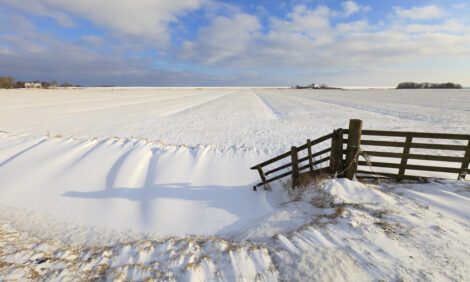



Mature Plants Linked to New Zealand Swede Mystery Cow Deaths
NEW ZEALAND – A team of scientists working to address ill-health in cows grazing swedes think the problem is down to plant maturity.Mild weather and changes to forage programmes are partly to blame for exposing cows to swedes in a later stage of maturity than normal on New Zealand's South Island last year.
However, DairyNZ, the organisation overseeing the swede research, is unable to tell why the flare-up of cases happened when it did. One theory is that swedes made up a greater proportion of the diet.
Trials commenced after farms reported mystery deaths on cattle grazing swedes as winter forage around August/September last year.
A theory has now developed that a dearth of frosts and a shift in feeding swedes twice in a season, on overwintering pastures and upon arrival back to the farm in last gestation, has resulted in a glut of mature plants available for cows.
More mature swedes have a higher concentration of glucosinates as leaf maturity develops and the bolting phase nears. Glucosinates are the naturally occurring compounds associated with the liver damage seen in dead and ill cows across Southland and South Otago.
Richard Kyte, regional DairyNZ leader for Southland and South Otago, added that herbicide tolerant swedes were linked to higher incidence of ill-health.
“We still haven’t got all the answers to the reasons why we saw an increase in ill-health last year. We may know more when the plant analyses are complete,” he said.
“We think the increased incidence of ill-health in spring relates to the farming trend whereby cows come home from grazing off-farm to feed onto more mature and higher risk crops planted on the milking platform (farm).
“All swedes carry a risk of adverse health effects when cows graze crops that are bolting - getting mature, growing longer stems and flowering.”
No farm level tests are available for swede growers, he added. “The results of our survey confirm that all varieties of swedes can present a risk to animals depending on how and when they are fed and used as part of the farming system.
“If farmers plant swedes, and many have this season, then they need to manage how and when they feed it to their cows.”
Michael Priestley
News Team - Editor
Mainly production and market stories on ruminants sector. Works closely with sustainability consultants at FAI Farms



